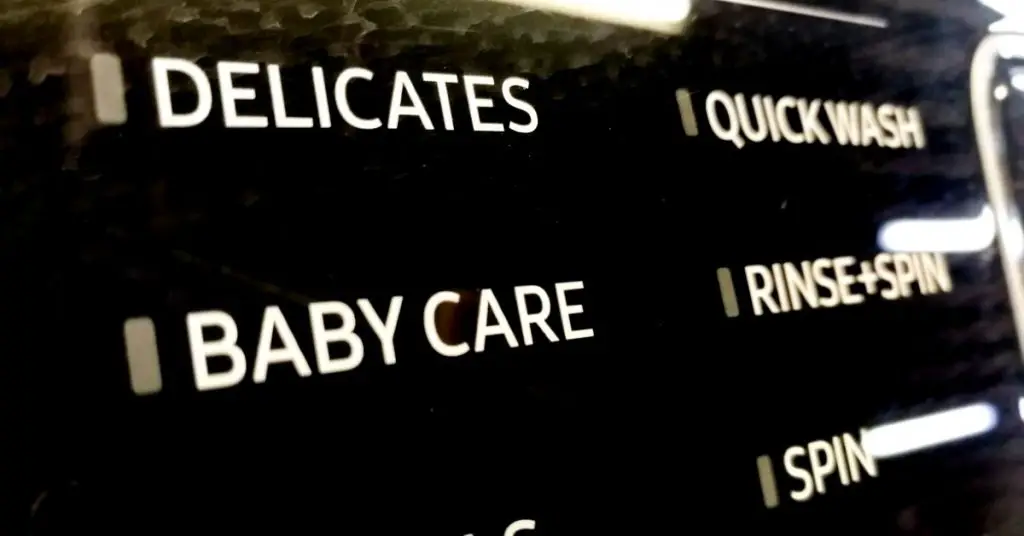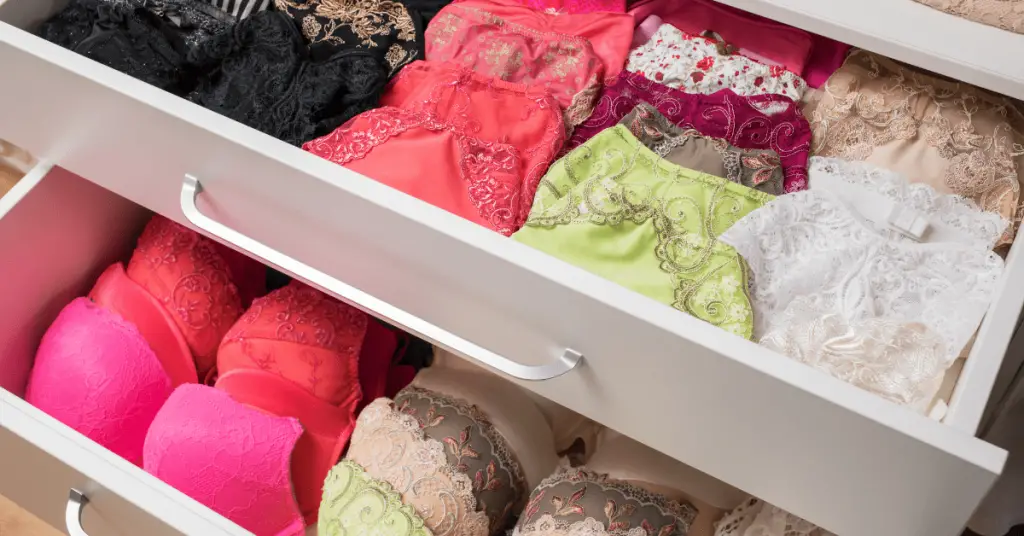What Are Delicates When Washing Clothes
We’ve all heard the term, but do you actually know for certain what are delicates in laundry?
Sometimes it feels like our washing machine settings might as well be in a different language.
With all the different compartments, cycles and settings, it can be almost impossible to grasp what the best thing to do is.
Nowadays, we are leading busy lives.
We don’t have the time to spend an hour staring confused at the manual, working out how to use every setting of our machine.
At Clean and Tidy Living, we like to make things simple.
That’s why we’ve made this handy guide.
To answer the question ‘what are delicates in laundry’ once and for all.
And, we’ve also covered some common problems that come with washing delicates, so you know exactly what to do, and what to avoid.
In this post, we’ll cover:
- What delicates mean in laundry
- Which items are considered delicates
- What does delicates mean on a washing machine?
- How to wash delicates like an expert
- Delicates laundry FAQs
Delicates Meaning
The term Delicates refers to items of clothing or fabric that require more care than our tougher garments. This can be due to the fabric, thinness of the material, or metal components such as wires in underwear.
Not treating them with care can result in shrinking, discolouration or damage. So, it’s important to launder them with gentle detergents and to hand wash or use the designated cycle on a washer.
If in doubt, always follow the manufacturer’s guidance on the clothing label.
What Are Considered Delicates?
Delicates include:
- Clothing made of wool; jumpers, hats, scarves, gloves
- Silk and lace fabrics such as underwear
- Underwear with metal wire such as bras or corsets
- Clothes with colours that easily run
- Cashmere
Wikipedia explains what delicate fabrics are in a rather wordy way:
“Delicate fabrics are distinguished from sturdier fabrics by being lighter in weight-per-unit-of-surface-area. They’re often more flexible and pliable. And often more liable to damage by wear and tear and by choices as to mode of laundering.”
But put simply, thin, expensive fabrics are probably going to need a bit more love and attention during the laundry process.
Finding this article useful? You might also like the Clean and Tidy Living Ultimate Washing Machine Temperature Guide – washing machine cycles explained!
What Does Delicates Mean on a Washer?
If your washing machine has a designated delicates cycle, it’s probably going to involve the following.
Delicate cycles tend to use cooler temperatures to avoid colours running, and a gentle spin that mimics the movement of the handwashing process.

This is to avoid causing friction or pulling to the fabric.
For items such as wool, cashmere and silk, using cycles other than the delicate or wool cycle can cause bobbling (or pilling).
Pilling is fixable, but it’s better to avoid it happening with gentler cycles and the right washing detergents for the job.
And in case it takes your fancy, we have a post all about what bobbling is and how to avoid it.
How to Wash Delicates
- To wash delicates in a washing machine, first, separate them from other items so the hard fabrics don’t rub and cause damage.
- Check the labels to see if they’re machine washable, items that say ‘hand wash only’ or dry-clean only’ shouldn’t be washed in a washer.
- After pre-treating any stains and fastening buttons and zips, place your delicates in the washing machine and select the delicates cycle. If there’s a hand-wash cycle, you can also use this.
- Add your detergent of choice. You can buy special detergent for delicates, such as Woolite, but it’s optional.
If you want to take extra precautions, place your delicates in a mesh bag so there’s less chance of snagging or pilling occurring.
For particularly soiled clothes, you can use the Presoak setting on your washing machine to help remove dirt and stains.
For more information, WikiHow lays out detailed instructions for washing delicates.

Delicates FAQs
What’s the difference between wool and a delicate cycle?
Both of these cycles will have low spin speeds to reduce agitation during the washing cycle. There won’t be much of a difference, other than a wool wash cycle being slightly longer to properly permeate the thicker fabric.
What’s better: hand wash vs delicate cycle?
If you’re looking for a gentle cycle, hand-wash and the delicate wash cycle can be used interchangeably, as they both use a similar spin speed, duration and temperature. If your items explicitly state hand-wash only, then we recommend erring on the side of caution and selecting the hand wash cycle.
Does high spin speed damage clothes?
High spin speeds can damage clothes due to zips, buttons, and other materials catching on fabrics and causing tears. Fabrics rubbing against each other at high speeds can also cause excessive pilling. You shouldn’t wash delicates at a high spin speed because the thin fabrics are prone to ripping.
Final Thoughts on Washing with Delicate Clothing
Our delicates are often the most expensive items in our clothing collections.
And frustratingly, they’re also easiest to damage during washing.
But as long as you take precautions and don’t take risks, washing delicates isn’t that bad.
Modern washers have dedicated cycles that mimic the movements of hand-washing.
And products like wool detergents and mesh laundry bags can make things even easier.
We hope this post answering what are delicates in laundry has been useful.
And we hope we’ve answered all of your other delicates questions too.
So the next time you’re choosing your washer setting and cycle for your most precious clothes, hopefully, you’ll know exactly what to do.
If you’ve enjoyed this post and would like some more cleaning and laundry tips, or product recommendations, take a look at our similar posts below.
Related laundry advice:
- The Best Top Tips For How To Stop Clothes Smelling Damp
- The Ultimate Washing Machine Temperature Guide
- What Temperature Kills Bacteria In A Washing Machine?
- Does Washing At 60°C Shrink Clothes?
- The Ultimate Guide To The Difference Between Bio And Non-Bio
- Best Smelling Laundry Detergent UK: Ultimate Buyers Guide
- The Best Natural Washing Powder In The UK

